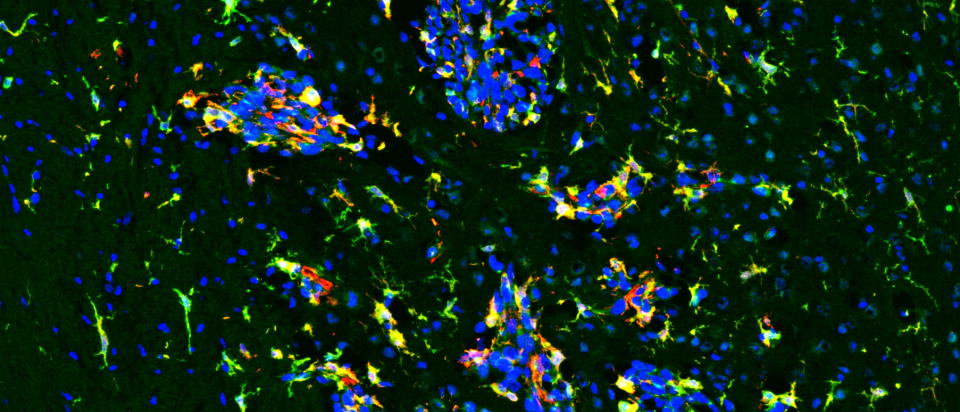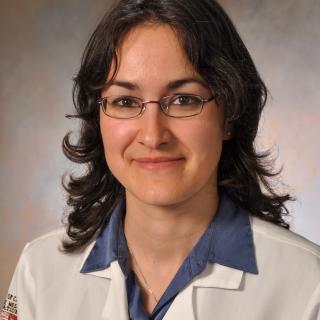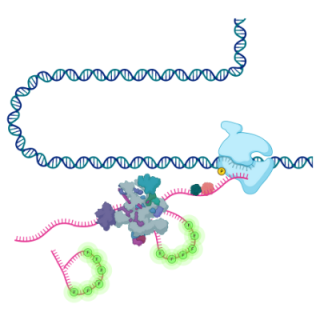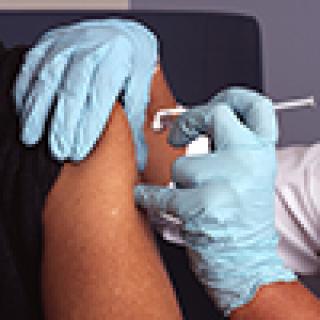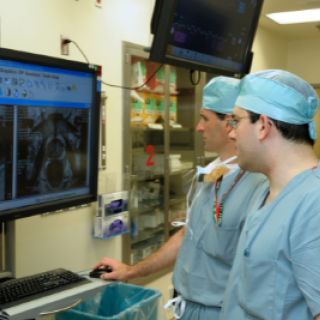News and Events
New Strategy Shows Promise Against Deadly Breast Cancer in the Brain
A new NIH study points to a promising strategy for treating aggressive breast cancer that spreads to the brain, a complication with few effective options. Learn how blocking a key brain cell survival pathway could open the door to future therapies.
Read MoreVassiliki Saloura receives 2021 Conquer Cancer Foundation of ASCO Career Development Award
Vassiliki Saloura, M.D., Ph.D., Physician-Scientist Early Investigator in the Thoracic and GI Malignancies Branch, is a recipient of the 2021 Career Development Award from Conquer Cancer, the American Society of Clinical Oncology Foundation. This award provides research funding to clinical investigators who have received their initial faculty appointment as they work to establish an independent clinical cancer research program.
Read MoreCCR fellow receives 2021 Conquer Cancer Foundation of ASCO Young Investigator Award
Nobuyuki Takahashi, M.D., an NIH Hematology Oncology fellow, is a recipient of the 2021 Young Investigator Award from Conquer Cancer, the American Society of Clinical Oncology Foundation. This award provides funding to promising investigators to encourage and promote quality research in clinical oncology. The purpose of this grant is to fund physicians during the transition from a fellowship program to a faculty appointment.
Read MoreWilliam Figg receives 2021 ACCP Distinguished Investigator Award
William Douglas Figg Sr., Pharm.D., Deputy Chief of the Genitourinary Malignancies Branch, received the 2021 American College of Clinical Pharmacology Distinguished Investigator Award. This award recognizes superior scientific expertise and accomplishments by a senior investigator, usually involving a distinct area of research in basic or clinical pharmacology for which the individual is internationally known.
Read MoreAACR Annual Meeting - Session II
A number of CCR scientists will present their research at the AACR Annual Meeting. The virtual session II takes place May 17-21, 2021.
Read MoreLive-cell imaging reveals variability in RNA processing
Real-time imaging of messenger RNA synthesis from hundreds of human genes reveals surprising variability in the way cells’ splicing machinery processes these molecules.
Read MoreElaine S. Jaffe to receive 2022 Gold-Headed Cane Award from the American Society for Investigative Pathology
Elaine S. Jaffe, M.D., NIH Distinguished Investigator in the Laboratory of Pathology, has been selected to receive the 2022 American Society for Investigative Pathology Gold-Headed Cane Award. This award recognizes significant long-term contributions to the field of pathology, including meritorious research, outstanding teaching, general excellence in the discipline and demonstrated leadership in the field.
Read MoreSteven A. Rosenberg named 2021 Dan David Prize laureate
Steven A. Rosenberg, M.D., Ph.D., Chief of the Surgery Branch, is a recipient of the internationally renowned Dan David Prize, which honors individuals and organizations for outstanding contributions that expand knowledge of the past, enrich society in the present and promise to improve the future. Rosenberg is recognized in the “future” category for his contributions to molecular medicine, including his landmark discoveries leading to the first cancer immunotherapies and for his ongoing efforts to develop immunotherapy for solid tumors. He is one of three “future” category prize recipients and will be honored May 9, 2021, during a virtual ceremony.
Read MoreBrigitte C. Widemann selected as a 2021 Sammies finalist
Brigitte C. Widemann, M.D., Chief of the Pediatric Oncology Branch, has been selected as one of 29 Samuel J. Heyman Service to America Medal (Sammies) finalists. These finalists are outstanding federal employees who serve the public good and are addressing many of our country’s greatest challenges. Widemann is nominated in the Science and Environment category for her pioneering clinical studies that led to Food and Drug Administration approval of selumetinib as the first treatment for children with neurofibromatosis type 1 who have symptomatic, inoperable plexiform neurofibromas.
Read MoreClinical trial evaluates COVID-19 vaccine in adults in treatment for cancer
Adults with hematologic malignancies or solid tumors may be eligible to participate in a new clinical trial at the NIH Clinical Center. Elad Sharon, M.D., M.P.H., Senior Investigator at the National Cancer Institute, is leading a study to assess the effects of the Moderna COVID-19 vaccine (mRNA-1273) in adults undergoing treatment for various types of cancer.
Read MorePersonalized approach to prostate cancer diagnosis could mean less invasive biopsies
Systematic and MRI-guided biopsies can each find cancers that the other technique can miss — but not everyone needs both. According to a new analysis, magnetic resonance imaging can be used to determine which biopsy approach is appropriate for an individual.
Read More